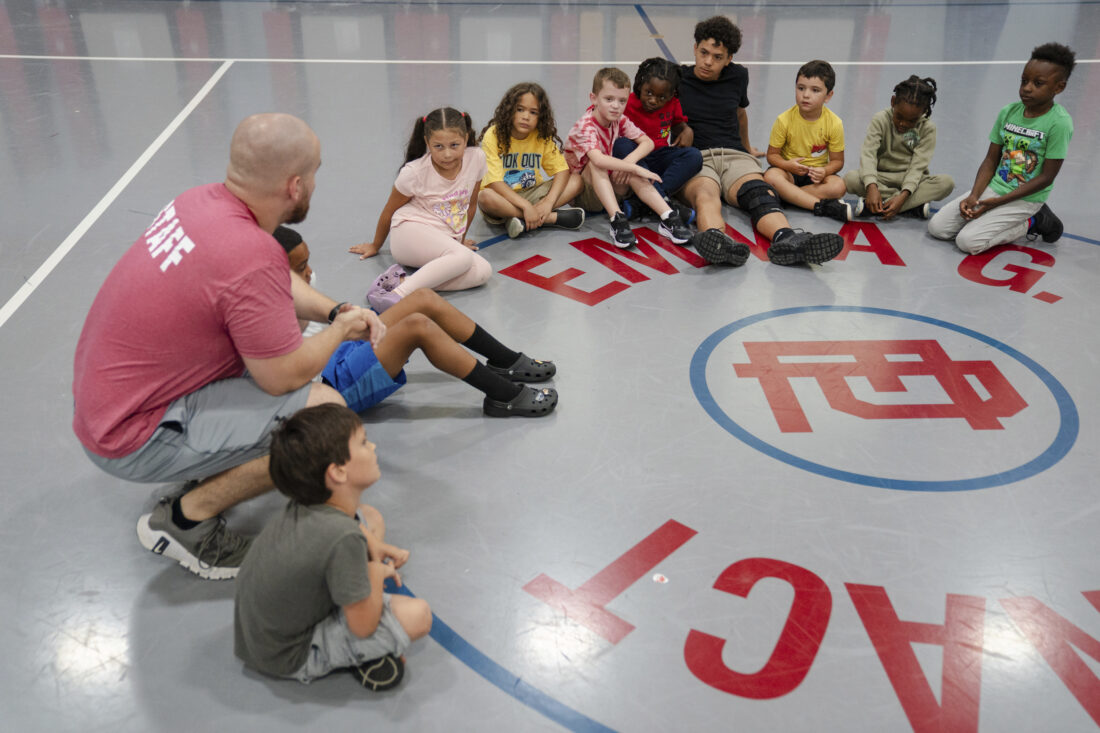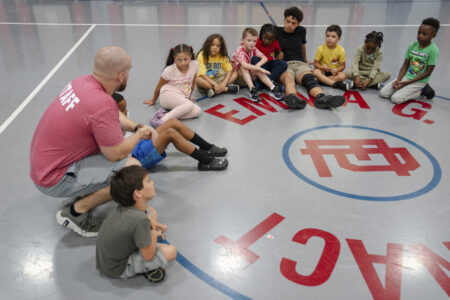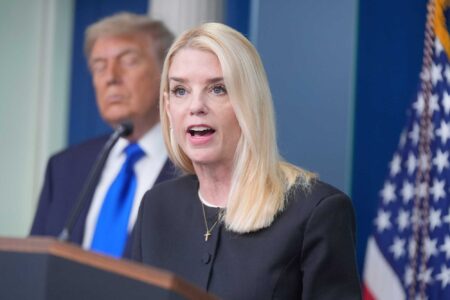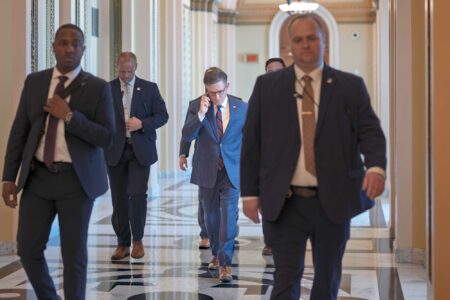Education Department will release some grants supporting community programs

Thomas Boucher leads children in an activity during the East Providence Boys and Girls Club Summer Camp at Emma G. Whiteknact Elementary School on July 10 in Providence R.I. (AP Photo/Sophie Park)
WASHINGTON (AP) — The Education Department will release $1.3 billion in previously withheld grant money for after-school programs, days after 10 Republican senators sent a letter imploring the Trump administration to allow frozen education money to be sent to states.
President Donald Trump’s administration on July 1 withheld more than $6 billion in federal grants for after-school and summer programs, adult literacy and English language instruction, part of a review to ensure spending aligned with the White House’s priorities.
In a letter sent Wednesday, Republican senators said the withheld money supported programs that had longstanding bipartisan support and were critical to local communities. The money had been appropriated by Congress in a bill that was signed by Trump.
“We share your concern about taxpayer money going to fund radical left-wing programs,” the senators wrote to the Office of Management and Budget. “However, we do not believe that is happening with these funds.”
The administration’s review of the 21st Century Community Learning Centers, which support after-school and summer programming, has been completed, a senior official said Friday. The person declined to be identified so they could share progress from the review. That funding will be released to states, the official said. The rest of the withheld grants, close to $5 billion, continues to be reviewed for bias by the Office of Management and Budget.
Without the money, school districts and nonprofits such as the YMCA and Boys and Girls Club of America had said they would have to close or scale back educational offerings this fall.
The money being released Friday pays for free programming before and after school and during the summer. The programs provide child care so low-income parents can work, and they give options to families who live in rural areas with few other child care providers. Beyond just child care, kids receive reading and math help at the programs, along with enrichment in science and the arts.
Despite the money’s release Friday, schools and nonprofits have already been disrupted by two weeks of uncertainty. Some programs have made plans to close, and others have fallen behind on hiring and contracting for the fall.
“While we are thrilled the funds will be made available,” said Jodi Grant, executive director of the Afterschool Alliance, “the administration’s inexplicable delay in disbursing them caused massive chaos and harm.” Many after-school programs had canceled plans to open in the fall, she said.
On Monday, more than 20 states had filed a lawsuit challenging the $6 billion funding freeze, including the money for English language instruction, teacher development and adult literacy that remains on hold. The lawsuit, led by California, argued withholding the money was unconstitutional and many low-income families would lose access to critical after-school care if the grants were not released.
David Schuler, executive director of AASA, an association of school superintendents, praised the release of after-school money but said that the remaining education funding should not be withheld.





